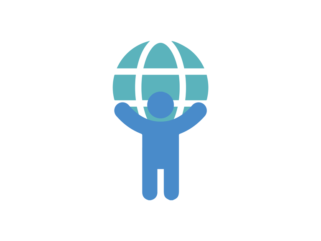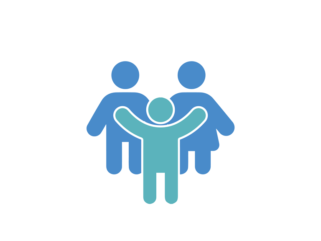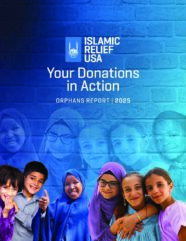Prophet Muhammad (ﷺ), said: “‘I and the one who looks after an orphan will be like this in Paradise,’ showing his middle and index fingers and separating them.” –Bukhari
The Challenges Facing Orphans Worldwide
There are roughly 153 million orphans worldwide. And every day, nearly 6,000 more children become orphans. To add, one in five children lives in a conflict or war zone, and studies show that these children are at high risk of experiencing violence, psychological trauma, hunger, and lack of access to basic needs.
That’s why IRUSA is working to improve the lives of orphan children by protecting them from illness; giving them access to proper nutrition, water, and sanitation services; and even providing them with educational opportunities.
Donors can show these boys and girls the power of love in these ways:
IRUSA Orphan Sponsorship Program
Over recent years, the global cost of living has risen significantly, impacting orphan families and their ability to cover their basic needs. IRUSA’s Orphan Sponsorship Program aims to make a more meaningful impact on each family’s life and ensure that sponsored children receive adequate support for nutrition, healthcare, education, and overall well-being.
In addition to the increased cost of living, we consult regularly with our frontline orphans teams; these staff members are in regular contact with sponsored orphan families and the need for a price increase was a primary concern. Our new pricing model gives orphan families the supplemental income required to cover their needs while remaining affordable to our donors.
Our approach focuses on family-based care, which is the most ethical and sustainable form of support for orphaned children. Family-based sponsorship offers a nurturing environment, where children are raised in a supportive family structure, which research has shown to be essential for their well-being and development.
Become a sponsor today for just $100/month ($1,200/year) and help a child escape extreme poverty.
- Albania
- Bangladesh
- Bosnia
- Djibouti
- Ethiopia
- Gambia
- Indonesia
- Iraq
- Jordan
- Kenya
- Kosovo
- Lebanon
- Malawi
- Mali
- Niger
- Pakistan
- Senegal
- Somalia
- Tanzania
- Türkiye
- Yemen
*Orphans originally from these countries may currently be living as refugees in neighboring countries depending on need. Palestinian refugee orphans reside in Jordan; Syrian refugee orphans reside in Jordan and Türkiye; and Uyghur refugees reside in Türkiye. Please also note: If orphans within the requested country are not available, sponsorship may be reallocated to countries with available orphans. Please call us at 1-855-447-1001 or email [email protected] with any questions.
*Orphans may be living as refugees in nearby countries depending on need.
For questions contact [email protected] or 1-855-447-1001.
Will you join the thousands of IRUSA donors who said YES! to orphan sponsorship?
Global Orphan Support
Thanks to donations to our Global Orphan and Vulnerable Children Support fund, our most flexible children’s fund, our teams around the world are able to help save and transform the lives of orphans and vulnerable children in effective ways. Your donations can help provide child-friendly safe spaces, empower communities, and develop long-term solutions to critical issues such as child marriage and child labor.
Frequently Asked Questions
1. How is an orphan selected for sponsorship?
Orphans are selected based on five main criteria: vulnerability, financial need, family size, housing conditions, and health. The families with the greatest need — such as larger families with dire financial situations — receive priority for sponsorship. Official documentation is required to confirm an orphan’s sponsorship, and the selection of children must not discriminate on the basis of race, religion, color, age, gender, or disability.
2. How does Islamic Relief USA define an orphan?
Islamic Relief USA defines an orphan as a child younger than 18 who is living without one or both parents. The orphan may be of any gender, religion, or race.
3. Does sponsoring an orphan count towards Zakat?
A donor can make the intention to donate for orphans with their Zakat as orphans are among the groups of vulnerable people who are eligible to receive Zakat funds. At IRUSA, Zakat-specific funds are often used to support efforts for orphans and their communities. Please note, however, that donations made specifically to our Global Orphans and Children Programs fund incurs a different admin fee than the admin fee applied to our Zakat-specific funds. For more information, please connect with us at 1-855-447-1001 or [email protected].
4. Can I write a letter to the orphan I am sponsoring?
Yes. The sponsor and orphan are free to exchange correspondence via Islamic Relief USA. Sponsors may email the correspondence to the [email protected].
5. Does IRUSA’s Orphan Sponsorship Program program include refugees?
Yes! Currently, IRUSA donors are helping sponsor Somali orphan refugees in Kenya; Palestinian orphan refugees in Jordan and Lebanon; Syrian orphan refugees in Jordan, Lebanon, and Turkiye; and Uyghur orphan refugees residing in Turkiye. In Lebanon, new and renewal sponsorships are not being accepted but pre-existing sponsorships are still being supported.
6. Can I write a letter to the orphan I am sponsoring?
Yes. The sponsor and orphan are free to exchange correspondence via Islamic Relief USA. Sponsors may email the correspondence to [email protected].
7. I have not heard about the orphan I am sponsoring. When will I be updated?
All sponsors receive a first (biodata) report on the child upon confirmation of the first donation payment. The first (biodata) report is emailed to sponsors typically six to eight weeks after initiating sponsorship. Annual progress reports will be sent based on availability from the respective field office. Donors may request an updated annual progress report via [email protected] if it has been past 12 months of the start of the sponsorship.
8. How is the sponsorship donation spent?
In many cases, sponsorship money is paid to the orphan’s guardian in several increments throughout the year. Of course, every country is different and there are unique circumstances that sometimes affect the frequency of payment or how the aid is delivered. You can learn the specific details of a particular country by connecting with us at 1-855-447-1001 or [email protected]. Orphans are monitored to ensure that they are receiving the full benefits of sponsorship. This may include health checks and/or education for school-aged children.
9. How long will the sponsorship continue?
You can sponsor an orphan as long as you wish, up to the age of 18. We require a minimum sponsorship time of one year because this allows us to plan ahead and maintain a consistent level of service to the orphan. However, in case of any difficulty, the sponsor may cancel at any time with advanced notice.
10. What countries is the Global Orphan & Children Programs fund active in?
Countries where the Global Orphan & Children Programs fund are active currently include Afghanistan, Albania, Bangladesh, Bosnia, Chechnya, Ethiopia, India, Indonesia, Iraq, Jordan (including Palestinian and Syrian refugees), Kenya, Kosovo, Lebanon, Malawi, Mali, Niger, Pakistan, Somalia, South Africa, Sri Lanka, Sudan, Tunisia, Turkey, and Yemen.


